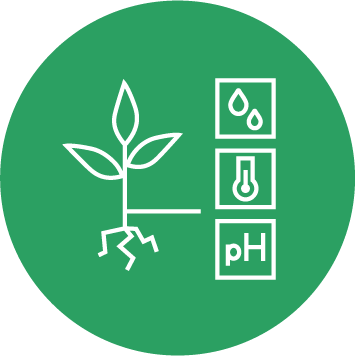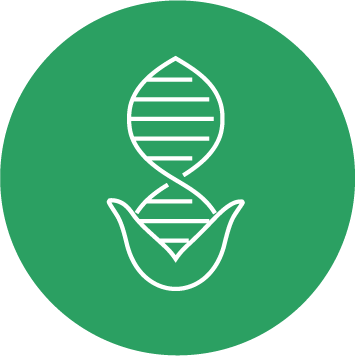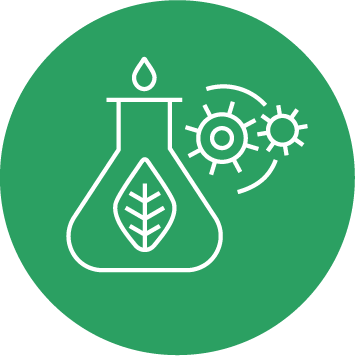0
You have 0 items in your cart
Reduced microbial activity and limited nutrient availability can result in lackluster harvests. We’ll give you a complete report of our findings and recommend corrective measures.
How much money are we talking? Studies performed by Kastens and Dhuyvetter concluded that a farmer could save $4-5 USD per acre on fertilizer by relying on accurate soil testing reports. And when grain prices are low and profit margins are razor thin, soil testing becomes even more critical.
Here are three of our best-selling, comprehensive soil tests.

The test that covers (almost) everything! We recommend this to everyone from commercial crop producers to home gardeners … anyone who needs to know what’s in their soil! This test measures pH, buffer pH, sum of cations (CEC), base saturation (%), soluble salts, organic matter, nitrate-nitrogen, phosphorus, potassium, calcium, magnesium, sodium, sulfur, zinc, iron, manganese and copper.

Click here to view more information about the PLFA test.
Another popular option, this test looks for phospholipid fatty acids, or PLFA. Analyzing PLFA gives you critical information about your soil’s microbial populations. Environmental conditions such as temperature and moisture can alter this microbial community. Knowing how these changes occur over time gives our producers the ability to compare various management techniques and how they affect the health of these microbes.

Ward Laboratories, Inc. is now offering a new Soil Health Assessment (SHA) package. This test combines the latest in soil science, ensuring that both soil fertility and soil health are viewed through a single test, helping farmers and researchers measure and manage soil health without compromising productivity. Microbial activity and food are evaluated to provide data that enhances operations while also evaluating nutrients in a manner that is widely accepted by Land Grant University correlations and calibrations.
This new package also includes modified aggregate stability. With this addition, the new Soil Health Assessment offers two biological, one chemical and one physical indicator of soil health.
This test looks for common harmful and pathogenic nematodes in soil, such as lesion and spiral nematodes, along with fungal feeding, and free-living nematodes. You can also request testing for Soybean Cyst Nematodes (SCN) in addition to your soil nematode test.
Samples submitted from outside Nebraska MUST include this APHIS permit.

Ward Laboratories, Inc. is now offering a new biological testing package. Through a strategic partnership with Trace Genomics, our customers now have access to nutrient cycling indicators, soil health indicators and pathogen analysis. This test utilizes whole genome sequencing, helping farmers and agronomists accurately identify biological threats and opportunities without compromising productivity. Trace’s use of industry-leading DNA sequencing, combined with their cutting-edge data analysis engine, is unmatched in agriculture and enables the most complete and detailed assessment of the soil’s capacity to cycle essential plant nutrients such as nitrogen and phosphorus. Measures of microbial biodiversity and oxygen availability, included in this new test package, also serve as important components in assessing the overall health of the soil.
Pathogen Analysis – detection and quantification of 170+ pathogens covering 70+ crop types.
Nutrient Cycling Indicators
Phosphorus – Phosphorus Mineralization Potential & Phosphorus Solubilization Potential
Nitrogen – Denitrification Potential, Nitrate Ammonification Potential & Nitrification Potential
Soil Conditions – oxygen availability & bacterial diversity
Please contact Makayla Fox before submitting samples.